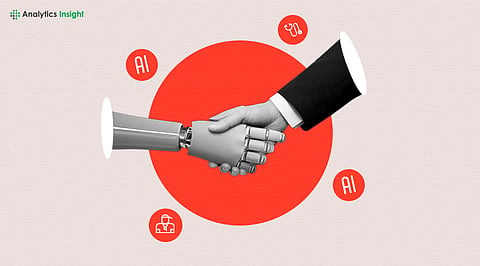

AI is increasingly supporting managerial roles with tools for coaching, emotional wellness, and performance feedback.
Leading firms like Microsoft and PwC are integrating AI copilots and mental health bots to boost employee productivity and well-being.
Global regulations emphasize transparency and fairness as AI takes on more decision-making responsibilities in the workplace.
AI is increasingly being incorporated into jobs traditionally performed by human managers. Over the last few years, enterprise-level AI software has moved beyond administrative tasks to encompass emotional support, coaching, and real-time performance feedback.
Artificial intelligence driven mental health solutions like Woebot, Wysa, and Youper are being adopted by companies to provide employees with access to mental well-being assistance. These solutions rely on natural language processing and machine learning to mimic conversations that help users cope with stress, anxiety, and depression. According to Wysa, more than 5 million users have accessed its services globally.
Read More: AI vs. Human Therapists: Can Machines Match Cognitive Therapy?
The important AI tools use an evidence-based therapeutic approach, which includes Cognitive Behavioral Therapy (CBT), and can detect emotional cues from text-based inputs. It is reported that Accenture and PwC have implemented mental well-being bots into their employee assistance programs.
Corporate platforms like BetterUp, CoachHub, and Humu now feature AI in coaching systems. These platforms analyze employee performance and behavioral data to provide actionable career development recommendations. For instance, BetterUp utilizes AI to match employees with coaches and to offer feedback on leadership skills through self-assessment and continuous feedback loops.
Microsoft Copilot and Google Gemini for Workspace provide real-time assistance within productivity apps, offering suggestions on writing, time management, and decision-making. These tools are built on large language models such as GPT-4 and Google’s Gemini 1.5.
According to a 2024 Gartner report, by 2025, 50% of knowledge workers are expected to use AI copilots daily, transforming how employees receive support and guidance.
AI solutions can now process workplace communication data to assess team dynamics and performance trends. Workday, for example, incorporates AI into its HR suite to offer career development insights, flag potential burnout, and suggest internal mobility options.
Similarly, Eightfold AI provides workforce intelligence platforms that deliver hiring and retention recommendations based on AI analysis of skills, resumes, and employment history.
Read More: Can ChatGPT and AI Therapists Improve Access to Mental Health Care?
Despite the apparent rise in the utility of AI systems, some limitations persist. A 2023 study in Nature Machine Intelligence found that large language models often have limited capabilities when it comes to context in emotionally nuanced workplace situations. Also, the AI inherits biases from its training data, raising considerations about fairness in the performance and decision processes.
According to a 2024 World Economic Forum report, while AI may replace some management functions, key leadership roles, particularly those involving empathy, conflict resolution, and ethical judgment, will likely remain human responsibilities.
Regulators keep a close eye on how AI is used in HR and leadership roles. The EU's AI Act (2023) sees AI in jobs and workforce management as high-risk. It calls for openness human control, and responsibility. In the US, the Equal Employment Opportunity Commission put out technical advice in 2023. It warned companies about the dangers of biased algorithms in AI-based hiring and performance reviews.
Artificial Intelligence is slowly assuming managerial activities such as coaching, emotional support, and performance evaluation, once handled by humans. However, regulatory frameworks, ethics, and technology currently allow for a domain of truly human actions like strategy formulation, empathetic leadership, and accountability. While AI aids leadership processes, it is incapable of replacing the human touch needed in complex interpersonal and ethical workplace matters.
